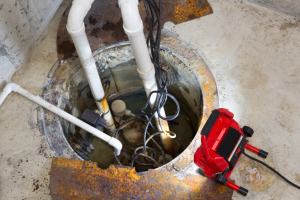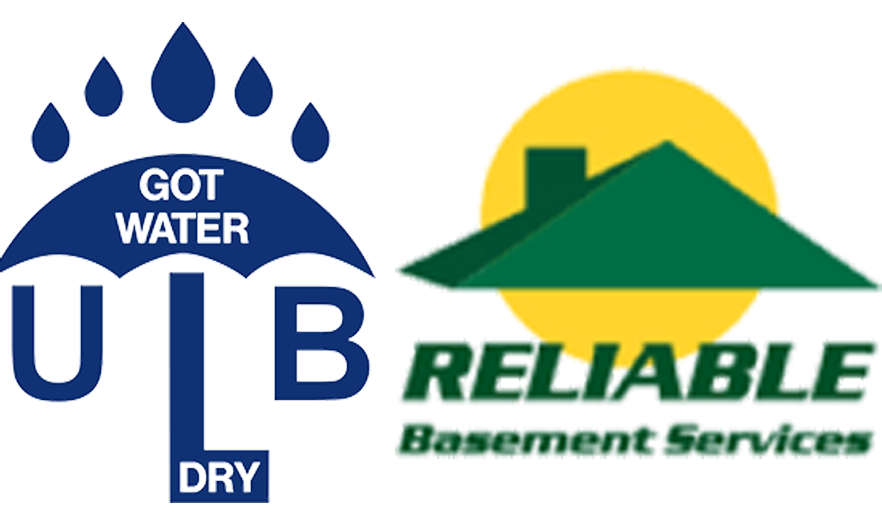
Hydrostatic pressure is a force that occurs when water accumulates around the foundation of your home. This pressure can build up gradually or suddenly, depending on various environmental factors such as heavy rainfall, rapid snowmelt, or a high water table. As the water pressure increases, it can exert significant force on the walls and floor of your basement, potentially leading to cracks, leaks, and other structural issues.
Basements are particularly vulnerable to hydrostatic pressure because they are partially or entirely below ground level, making them susceptible to groundwater intrusion. The soil and rocks surrounding your home’s foundation act as a sponge, absorbing water and transferring it to the basement area. This can create a constant pressure that, if left unaddressed, can compromise the integrity of your home’s structure.
Below, this basement waterproofing company in Stone Park, Illinois is going to discuss some of the key things to know about hydrostatic pressure, and we’ll also explain how a sump pump can help alleviate this issue.
Signs of Hydrostatic Pressure in Your Basement
Identifying the presence of hydrostatic pressure in your basement can be a crucial first step in addressing the issue. Here are some common signs to look for:
- Wall Cracks: Cracks or bowing in the basement walls can be a clear indication of excessive water pressure buildup. These cracks may start small but can gradually worsen over time, potentially leading to more severe structural problems.
- Floor Cracks: Cracks or unevenness in the basement floor can also be a symptom of hydrostatic pressure. As the water pressure pushes upward, it can cause the concrete slab to crack or heave.
- Leaks and Moisture: If you notice water seeping through the walls or pooling on the floor, it’s a strong sign that hydrostatic pressure is at play. Excess moisture can also lead to the growth of mold and mildew, further compromising the health and safety of your home.
- Efflorescence: This is a white, powdery substance that can appear on the surface of basement walls or floors, indicating the presence of moisture and salt deposits from groundwater.
- Musty Odors: A persistent musty or damp smell in the basement may be a sign of excess moisture and water intrusion, which can be caused by hydrostatic pressure.
If you notice any of these signs in your basement, it’s essential to contact a professional basement waterproofing company in Stone Park, Illinois to prevent further damage and potential health hazards.
The Importance of Addressing Hydrostatic Pressure
Ignoring hydrostatic pressure in your basement can lead to a host of problems, both structural and financial. Unaddressed water pressure can cause the following issues:
- Structural Damage: As the pressure builds, it can cause cracks, bowing, and even collapse in the basement walls and floor, compromising the overall integrity of your home’s foundation.
- Water Damage: Leaks and moisture intrusion can lead to the growth of mold and mildew, which can damage your belongings and pose health risks to your family.
- Decreased Property Value: Unresolved basement water issues can significantly reduce the value of your home, making it less appealing to potential buyers.
- Increased Repair Costs: The longer you wait to address hydrostatic pressure, the more extensive and costly the repairs may become. Addressing the problem early can save you money in the long run.
Addressing hydrostatic pressure in your basement is not only essential for the structural integrity of your home but also for the health and safety of your family. By taking proactive steps to mitigate the issue, you can protect your investment and ensure your home remains a safe and comfortable living environment.
How Sump Pumps Can Help
One of the most effective ways to address hydrostatic pressure in your basement is by installing a sump pump system. A sump pump is a specialized device that is designed to remove excess groundwater from around your home’s foundation, effectively relieving the pressure and preventing water intrusion.
Here’s how a sump pump works:
- Sump Pit: A sump pit is a small, recessed hole dug into the lowest part of your basement floor, usually near the foundation wall. This pit collects the groundwater that seeps into your basement.
- Sump Pump: The sump pump is installed within the sump pit and is responsible for actively removing the collected water. When the water level in the pit rises, the pump is triggered, and it pumps the water out of the basement and away from the home’s foundation.
- Discharge Line: The water pumped out of the basement is typically directed through a discharge line that leads the water away from the home, often to a storm drain or a dry well.
A professional basement waterproofing company in Stone Park, Illinois can install a sump pump that will effectively manage hydrostatic pressure and prevent water damage in your basement. This will not only protect the structural integrity of your home, but it can also safeguard your belongings and ensure a healthy indoor environment for your family.
Looking for a Basement Waterproofing Company in Stone Park, Illinois?
If you’re a Stone Park homeowner who is concerned about the potential impact of hydrostatic pressure on your basement, it’s crucial to find a reliable and experienced basement waterproofing company in Stone Park, Illinois that can address the issue. That’s where ULB-DRY Waterproofing can help. Take the first step towards a dry, safe, and structurally sound basement by contacting us today.





